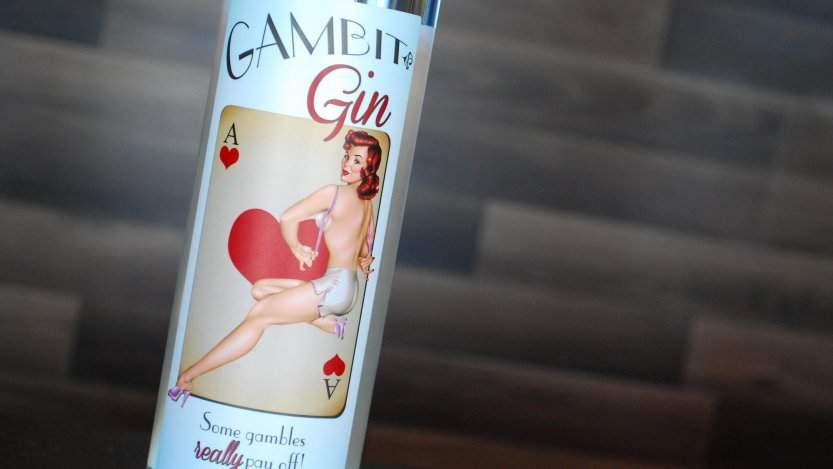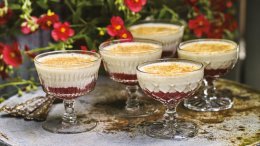While locality remains one of the most celebrated attributes in food and cocktails, co-owner (and "President of Vice") Michael Goldney of Saskatoon’s wildly successful LB Distillers (Lucky Bastard Distillers) -- founded in 2012 along with his wife Lacey Crocker and Cary Bowman -- prefers to take emphasis away from that aspect of the business.

“[Being distinguished for being local] is great, and we are definitely very grateful for the support,” Goldney says. “However, we are also very cognizant of the fact that being local isn't good enough. We recognize that everyone is local somewhere and really don't want people to buy [our product] just because we are local; we want them to buy from us because we are awesome.”
It’s because of this ambition that LB Distillers has enjoyed a meteoric rise to prominence in Saskatchewan, with its products found in over 190 offsales, restaurants and bars, and surpassing a million dollars in annual sales -- all before its second birthday.
“We've managed to grow rapidly without sacrificing quality and the things that make us special,” says Goldney.
It is exactly the quality he speaks of that has set LB apart. Even with carefully controlled growth, its small size gives it several distinct advantages.
“The fact that we are limited in the amount of spirits we can sell means that we can focus on making every drop of the spirit about flavour,” explains Goldney. “What a large producer would consider a significant decrease in productivity, we actually think is an important part of our process.”
For example, Lucky Bastard can sacrifice the alcohol yield by choosing premium malt over distiller’s malt. It can also let its fermentations go for two weeks, versus the industry standard of less than 60 hours.
“We do this because we want to capture the fruity ester notes that come with long fermentations,” Goldney says.

Another advantage of being a micro-distillery is its agility and that it can take chances with products that would be difficult for bigger operations.
“If we want to introduce a traditional spiced Ukrainian horilka or "new western dry gin", we can,” says Goldney. “Similarly, if we want to make a batch of sea buckthorn liqueur or haskap liqueur, we can. It would be difficult for a large distillery to obtain enough of these specialty fruits, and I suspect that they wouldn't take a chance on the very unique flavours that come from these specialty plants.”
Lucky Bastard is more than a bottle or a store; it’s an experience for its customers. It offers complimentary tastings and tours of the production area, so you can see the process for yourself and meet the people making the booze.
“We always say that if you’re proud of what you’re doing, you have no secrets,” quips Goldney.
This glasnost in the craft beverage industry was extremely helpful to the team at LB Distillers when they were learning their techniques: they toured over 30 micro-distilleries in Canada and the U.S. Some offered courses and workshops, and even those that didn't were passionate enough about what they did to share tips and answer questions.
“We also spent a great deal of time with Frank Deiter, the original master distiller from Okanagan Spirits,” says Goldney. “Frank set up our equipment and helped us tweak our original recipes.”

Not only is Goldney proud of his existing lineup -- anyone who has taken a sip of a cold gin and tonic made with LB’s Gambit Gin (and Fentimen’s Tonic) knows that they’re tasting a cocktail that could easily retail for $15.00 in an upscale lounge -- but LB continually has new products that he is thrilled about, like its Horilka Medova z. Pertsinka, a honey-peppered vodka, which was originally intended as a seasonal limited edition, but may be kept in regular production.
“Additionally, we are working on a barrel-aged gin that should be ready to bottle in June and I think it will make an amazing gin martini," says Goldney. "We continue to come up with new ideas and always have to reign in our plans. Really, that is one of the reasons I am super excited about the craft distilling scene and really do want to see more micro-distilleries open up in the province. I've come to the sad realization that I won't live long enough to make all the spirits I want to make.”













